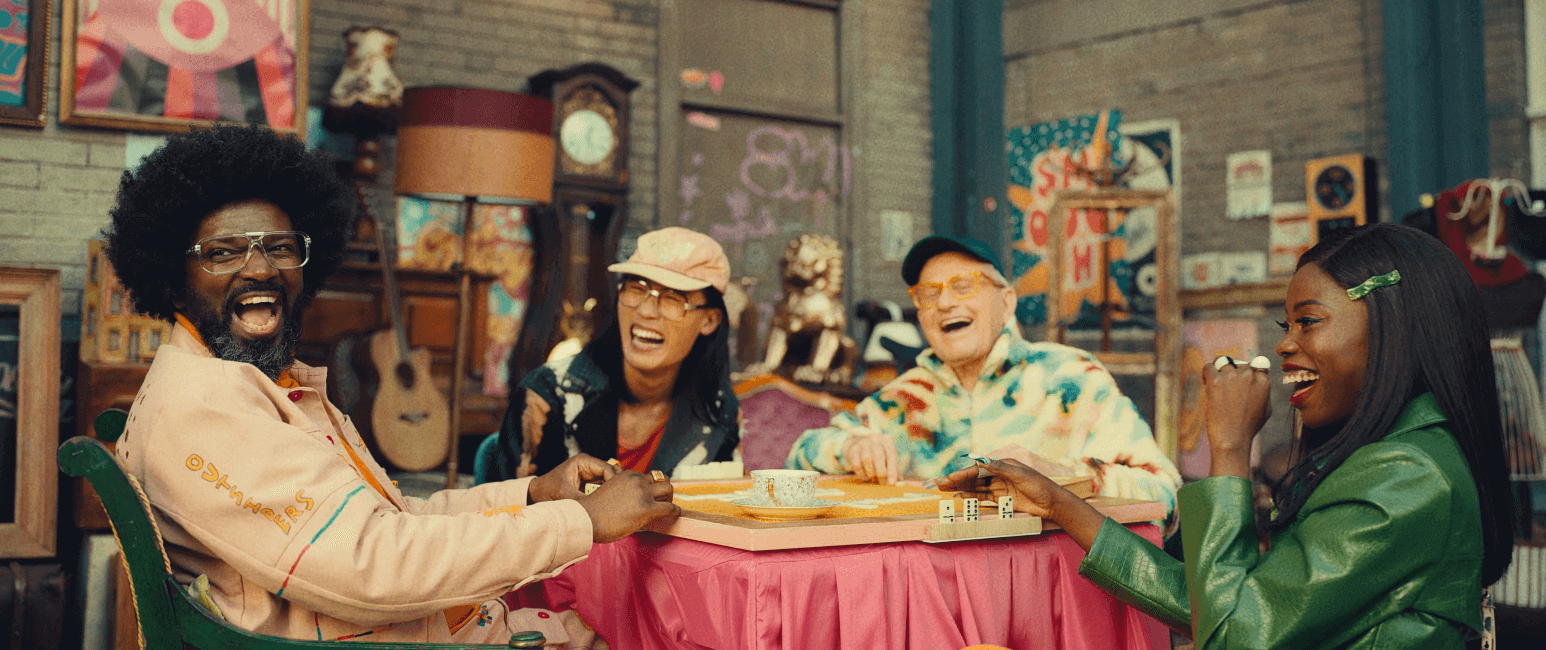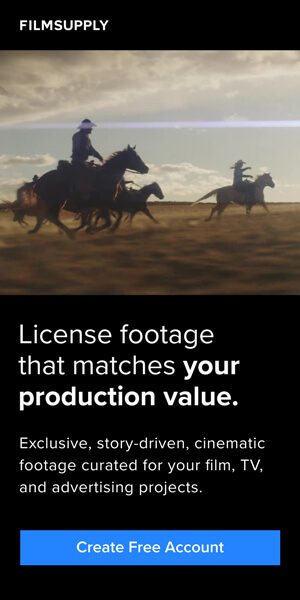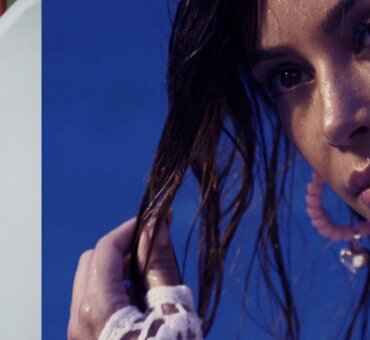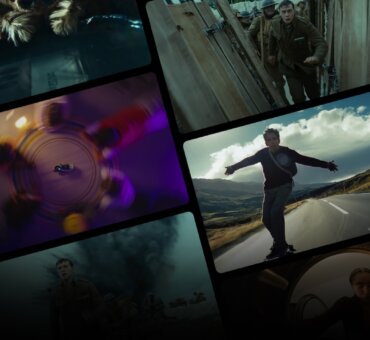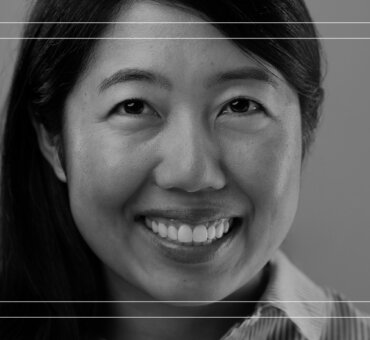It can be hard to pinpoint what a good producer looks like because the problems they face are never the same twice. If you’re Javier Alejandro, one day you’re coordinating a ballet with tanks, and the next day you’re flying a plane into Bulgaria for a Dua Lipa video. But, behind the facade of these incredible problems, there are a few common threads, including having a zen serenity.
“In the past, I’d waste time thinking about the issue, but the issue still hasn’t changed in 10 minutes,” Javier said. “So, what’s the solution? How can we adapt to this? The location next door, can we switch it around? Can we flip the schedule, getting the exterior first before we do the interior? Maybe by then, we’ll have a generator. One of your cards has been pulled. What other cards can you play?”
Being a good producer means having a healthy mindset. You’re not someone who just solves problems; you’re someone who takes a problem and turns it into an opportunity, which is exactly what Javier has done throughout his career. He’s behind some of the biggest ads and music videos in recent memory—from Stormzy and Dua Lipa to global campaigns with Nike and Axe—and has amassed hundreds of millions if not billions of views.
In our conversation, we talked about his mindset in production, and how the skills of a producer are the same: whether you’re working with an indie budget or a massive budget. First, you have to care, and then you need to have a higher-than-average AQ (Adaptability Quotient). We’ll let Javier explain.
Filmsupply: What’s essential for a producer to keep in mind when starting a new job?
Javier Alejandro: There’s no point in going into something without showing interest. Otherwise, why is someone entrusting you as a producer if you don’t care? Before I walk into a meeting, I always research the director’s last five jobs. If you go into a meeting and you don’t get on with a person, or you don’t have any research, it can be tough. Your job is to care just as much as a director does in bringing their vision, and their creative’s and agency’s vision to life. If you don’t care, then, oh sh*t, you’re on the wrong job.
In the beginning, did you always work jobs you cared about?
In general, I’ve been very lucky to be able to work on cool projects across the board. I’ve always been consistent in tapping who was doing cool projects. Even on the music videos as a runner, I’d be on projects that I was infatuated with at the same time. I’ve always been that guy. If I met someone from the label or the artist, I made sure that relationship was maintained, because they shared the same interest and love that I did.
Automatically, people saw me as someone who just cared. Sometimes you get runners who don’t want to do anything. I was just keen and motivated and would run around picking up the gaffer’s lights and moving them. It’s an all-around thing. I was usually that kid who wanted to help. It’s a mentality.
What was the first job that really pushed you to the next level?
There have been quite a few. When I started working with Cyprien Clement-Delmas, he’s with Caviar, we did a music video for “War Dance” by THYLACINE. We basically got these tanks in Ukraine to do a ballet. It was insane. We shot part of it in London, where we found these guys called Tanks-a-Lot. I’ve always remembered their name [laughs]. We went to Ukraine, we shot in a war hospital and interviewed some incredible people with amazing stories.
After that, I was like, ‘Okay, this is a craft.’ We had a very tiny budget, like 30 or 40 grand. But I decided that was the type of sh*t I wanted to be doing for the rest of my life, this project where everyone’s there for the love of it.
I was working with Caviar quite a lot and a few other companies. I met Henry Scholfield, and we did this music video for “Boasty” by Wiley, and that just popped off. We also did “Vossi Bop” with Stormzy and that was a game-changer. We shot on Westminster Bridge, in St. Paul’s, and on an abandoned airfield. Idris Elba happened to be in both of those music videos as well. Stormzy’s video won best rap video of the year. I got Best Producer award, the director got Best Director award. To be acknowledged for what you’ve done, and to be one of the youngest producers to win that, that was a bit of a push.
How do you win a Best Producer award when everything you do is behind the scenes?
It’s a very good question: How do you win best producer, and why? It’s the level of work, what goes into each frame. ‘What has this producer done to make that video happen?’ For Stormzy’s video, there were like six car stunts, an artist sitting on the bonnet of an Uber driving and a crazy amount of cast, locations, and effects. It’s the scale and the production value. UK music videos compared to US music videos, they’re nowhere near as big in terms of scale and budget. In the UK, you want people to think, ‘Wow, how did you guys do that? What was the money behind that?’ It’s about what’s on-screen.
That seems to sum up a producer’s role nicely—getting a lot out of a little.
Yes. It’s about adaptability. Everyone goes on about IQ all the time. What about AQ? I think AQ is what makes a good producer. It’s how you adapt. Pre-COVID, I would always tell my crew, ‘Guys, we’re not saving lives, we’re making films.’ In the current climate, things are a little different, but you still have to keep your cool. I’m not going to say that I don’t lose my sh*t sometimes and stress out, but I always remind myself that I need to stay level. If you start mixing loads of emotions in, that’s when you start making unruly decisions.
It’s also about calculated risks. There have been so many calculated risks that I’ve taken, and sometimes you just have to. Take the Stormzy music video, for example. For some reason, the car company sent us the wrong-colored car. I didn’t even show it to my director because I knew it didn’t work. So what did I do? I booked an Uber. I told the driver, ‘Here’s a waiver, we’ll make sure everything’s fine. We’ve got a stunt driver driving your car.’ It’s a risk, but the worst that can happen is you have to buy a new Toyota Prius.
Well, and you have to pay the Uber fee.
[Laughs] Yeah. He left the meter running for a hell of a long time. But you just have to take those risks. Can you imagine what this guy was thinking? He thought he was coming for an Uber ride and ended up making a few hundred quid and having Stormzy sitting on his bumper as you see like five cars drifting. Hundreds of millions of people have seen that.
Is there a correlation between how difficult a project is and how good the project is?
One hundred percent. We just wrapped my toughest project in Mexico. We shot on a beach. We closed down the port, closed down a beach town, closed down a Puebla Magico, closed down Mexico City. We were in a jungle, we were in a quarry. Even the director, who’s way more experienced than me, said it was his toughest job. But, is it going to be my best job? Yes. It’s going to be crazy.
If you have a producer who says yes to the director all the time, then inevitably it’s going to be a watered-down treatment. You have to have that battle between the producer and the director. You have to bump heads. You have to say, ‘Hey guys, cool, we can’t do this but we can do this.’
I always say to my directors, especially my new ones, ‘I’ve got a deck of cards. I can’t use the whole deck of cards. I’m only allowed to use five cards. You can have an ace and you can have a king, but at some point, you’re going to have to have a two or a three.’ That’s how it works. You’ve got battles. Sometimes they want five kings, but there are not five kings in the deck. More often than not I can give the director what they want. That’s great too. But there are always restrictions.
Like what?
For my A$AP Rocky project, we couldn’t fly in loads of cast, so we compromised. Some of the main cast were from Bulgaria. We managed to find some cool people, two or three who were really good, but we had to be creative because they weren’t the most experienced actors, tweaking characters.
Dua Lipa was a tough one because there were so many different motions and effects and stunts and rigging. We had a whole room tilting. We wanted to build a whole plane, but we couldn’t do it, so we brought in a whole plane. It was actually cheaper than building one. The cost of the actual transportation was more than renting the plane.
Those problems are obviously different than lower-budget projects, but do the same skills apply at every level?
That’s a good question. You have to go through those lower-level hustles and negotiations to understand and appreciate a big budget. But when you have a big budget, you still have to hustle to a certain degree. You have to be intuitive. It becomes more than just money. Ultimately, don’t worry about the problem. We’re naturally built to worry about things. When something goes to sh*t—’we don’t have any lights; someone messed up and they didn’t send us the lights’—even spending that breath of, ‘Oh sh*t, they messed up,’ is a waste. Use that energy and spend time finding the solution.
In the past, I’d waste time thinking about the issue, but the issue still hasn’t changed in 10 minutes. So, what’s the solution? How can we adapt to this? The location next door, can we switch it around? Can we flip the schedule, getting the exterior first before we do the interior? Maybe by then, we’ll have a generator. One of your cards has been pulled. What other cards can you play?
There’s simplicity in knowing that a problem can either be solved or it can’t.
Exactly. There’s also a level of mental health as well that is underestimated in the game of production. I think a lot of pressure is put on the producer. And not everyone can handle it. There’ve been moments where I’ve broken and I needed to take a step back. We’re human. You’ve got to be able to ask for help. You have a whole team. You have professionals, DPs, directors, everybody. Let’s take two minutes and fix this.
As a producer, I can only offer so much, whereas the DP might be like, ‘Actually, the lights have gone out but I’ve got five SkyPanels that can run off batteries and that’ll do.’ Not every producer is technical, but some DPs might be able to suggest something the producer wouldn’t know. You have your team, and it’s not like you have to feed everyone. Everyone is in the same kitchen as you are, making the same plate together. It’s about using the expertise that you’ve hired and not just relying on yourself.
I feel like a lot of people are scared of asking, and they shouldn’t be. As a runner, I was never afraid. Or maybe I was just cocky. [laughs]. I was always asking questions. And yeah, it can get irritating at a point, but I prefer people asking questions than not.
You’ve worked with a lot of ambitious directors. What does it mean to be an ambitious producer?
Say ‘no’ less. I try to avoid saying no. It’s my last resort. When I get involved in a project, I want it to be the best project I’ve done. This is so cliché, but you’re only as good as your last project. To get there, you have to learn to say no less, but also have a solution in place of that ‘no.’
Sometimes I do say no because some requests are just preposterous. But, the more level-headed you are, the more you can think about it, and see where your director is going with it, you see how cool their ideas could be.
That’s where I put myself, and it’s dangerous, to stop thinking like a producer and start thinking like a director. I’ll think, ‘What if we got this technocrane and added these extras?’ Then, I’ll think, ‘Why did I just say that? My job just got way harder.’ I’m going to have to deal with that and figure out how I’m going to find the money that we don’t have. But, on the other hand, it would be cool. I could shout about my problems, but then I see the final product and think, ‘Okay, that was worth the bullsh*t.’
Read how TCO London’s senior producer Josh Hillman produces work under pressure.
